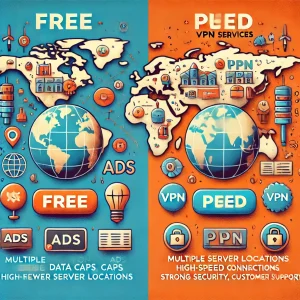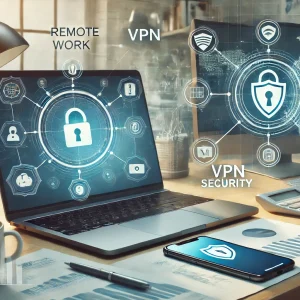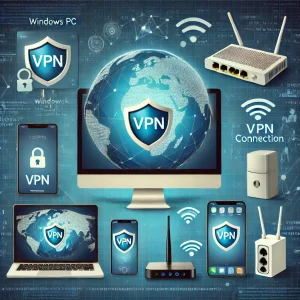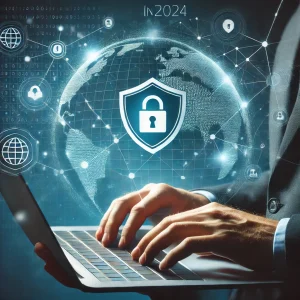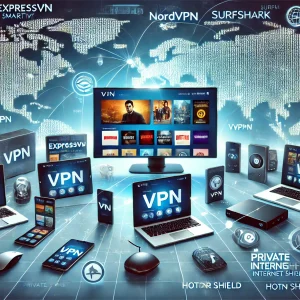Introduction
In the ever-evolving landscape of digital security, Virtual Private Networks (VPNs) have emerged as essential tools for protecting online privacy and security. Despite their growing popularity, numerous myths and misconceptions persist, leading to confusion and misuse. This blog post aims at Debunking Common VPN Myths and Misconceptions in 2024, providing readers with accurate information and practical advice to make informed decisions about their online security.
Why This Topic Matters
Understanding the truth about VPNs is crucial for anyone looking to safeguard their online activities. Misinformation can lead to inadequate protection, a false sense of security, or even the abandonment of this valuable tool altogether. By Debunking Common VPN Myths and Misconceptions in 2024, we aim to enhance your understanding and help you utilize VPNs effectively.
Myth 1: VPNs Are Only for Tech Experts
Reality: VPNs Are User-Friendly
One of the most pervasive myths is that VPNs are complicated and only for tech-savvy individuals. In reality, modern VPN services are designed with user-friendliness in mind. Most VPN providers offer simple interfaces, easy setup processes, and 24/7 customer support. Whether you’re a tech novice or an expert, using a VPN can be as straightforward as installing an app and clicking a button.
Practical Tips
- Choose a reputable VPN provider: Look for services that offer user-friendly apps and clear setup guides.
- Follow setup instructions: Most VPNs provide step-by-step guides for installation on various devices.
- Use customer support: Don’t hesitate to contact support if you encounter any issues.
By addressing this myth, we are actively Debunking Common VPN Myths and Misconceptions in 2024.
Myth 2: VPNs Are Only for Illegal Activities
Reality: VPNs Serve Various Legal Purposes
Another common misconception is that VPNs are primarily used for illegal activities. While some may misuse them, the majority of VPN users employ these tools for legitimate reasons. VPNs can enhance privacy, secure public Wi-Fi connections, access geo-restricted content, and protect sensitive data during online transactions.
Practical Tips
- Secure your connection: Use a VPN to protect your data when using public Wi-Fi.
- Access content globally: VPNs can help you access services and content unavailable in your region.
- Enhance privacy: A VPN can prevent ISPs and third parties from tracking your online activities.
Addressing this misconception is another step in Debunking Common VPN Myths and Misconceptions in 2024.
Myth 3: All VPNs Are the Same
Reality: Quality and Features Vary Significantly
Not all VPNs are created equal. The quality, security features, and performance can vary dramatically between providers. Some VPNs offer robust encryption, no-logs policies, and high-speed connections, while others may compromise on these aspects.
Practical Tips
- Research thoroughly: Compare different VPN services and read user reviews.
- Check security features: Look for strong encryption, no-logs policies, and advanced security protocols.
- Test performance: Many VPNs offer free trials or money-back guarantees, allowing you to test their performance.
By highlighting these differences, we contribute to Debunking Common VPN Myths and Misconceptions in 2024.
Myth 4: Free VPNs Are Just as Good as Paid Ones
Reality: Free VPNs Often Come with Limitations
While the idea of a free VPN may be appealing, these services often come with significant limitations and risks. Free VPNs may have limited server options, slower speeds, and weaker security measures. Additionally, some free VPNs may collect and sell your data to third parties, undermining your privacy.
Practical Tips
- Understand the limitations: Be aware of the potential downsides of free VPNs.
- Consider investing: Paid VPNs usually offer better security, performance, and customer support.
- Read privacy policies: Ensure the VPN you choose respects your privacy and does not log your data.
Clarifying this point is essential for Debunking Common VPN Myths and Misconceptions in 2024.
Myth 5: VPNs Make You Completely Anonymous
Reality: VPNs Enhance Privacy but Don’t Guarantee Anonymity
While VPNs significantly enhance your online privacy, they do not make you completely anonymous. VPNs mask your IP address and encrypt your data, but other factors, such as browser fingerprinting and cookies, can still be used to track your online activities.
Practical Tips
- Combine tools: Use a VPN alongside other privacy tools, such as secure browsers and ad blockers.
- Practice good habits: Clear cookies regularly and use private browsing modes.
- Stay informed: Keep up to date with the latest privacy practices and technologies.
This clarification is another important aspect of Debunking Common VPN Myths and Misconceptions in 2024.
Myth 6: VPNs Slow Down Internet Speed Significantly
Reality: Quality VPNs Minimize Speed Reduction
It’s true that using a VPN can slightly reduce your internet speed due to the encryption process and data routing through servers. However, high-quality VPNs are optimized to minimize this impact, offering fast and reliable connections.
Practical Tips
- Choose a fast VPN: Look for VPNs known for their high-speed performance.
- Use nearby servers: Connecting to a server closer to your location can improve speed.
- Check your internet speed: Ensure your base internet speed is sufficient for VPN use.
This myth is crucial to address as part of Debunking Common VPN Myths and Misconceptions in 2024.
Myth 7: VPNs Are Only Necessary for Certain Activities
Reality: VPNs Are Beneficial for Various Online Activities
Some believe VPNs are only necessary for specific activities, such as torrenting or accessing restricted content. In reality, VPNs are beneficial for a wide range of online activities, including everyday browsing, online banking, and communication.
Practical Tips
- Use a VPN consistently: Protect your online activities by keeping your VPN active.
- Educate others: Share the benefits of VPNs with friends and family to promote safer online practices.
- Stay vigilant: Always be aware of the potential risks and protect your digital footprint.
Understanding this is essential for Debunking Common VPN Myths and Misconceptions in 2024.
Conclusion
Debunking Common VPN Myths and Misconceptions in 2024 helps clarify the true value and functionality of VPNs. By understanding and addressing these misconceptions, you can make more informed decisions about your online security and privacy. Remember, VPNs are powerful tools that, when used correctly, can significantly enhance your digital safety.
For those looking to explore VPN options, it’s crucial to research thoroughly, choose reputable providers, and use VPNs in conjunction with other privacy measures. By doing so, you can enjoy a safer and more private online experience.
By Debunking Common VPN Myths and Misconceptions in 2024 and providing practical tips, we hope to empower you to use VPNs effectively and confidently. Stay informed, stay secure, and make the most of your online activities with the right VPN.
